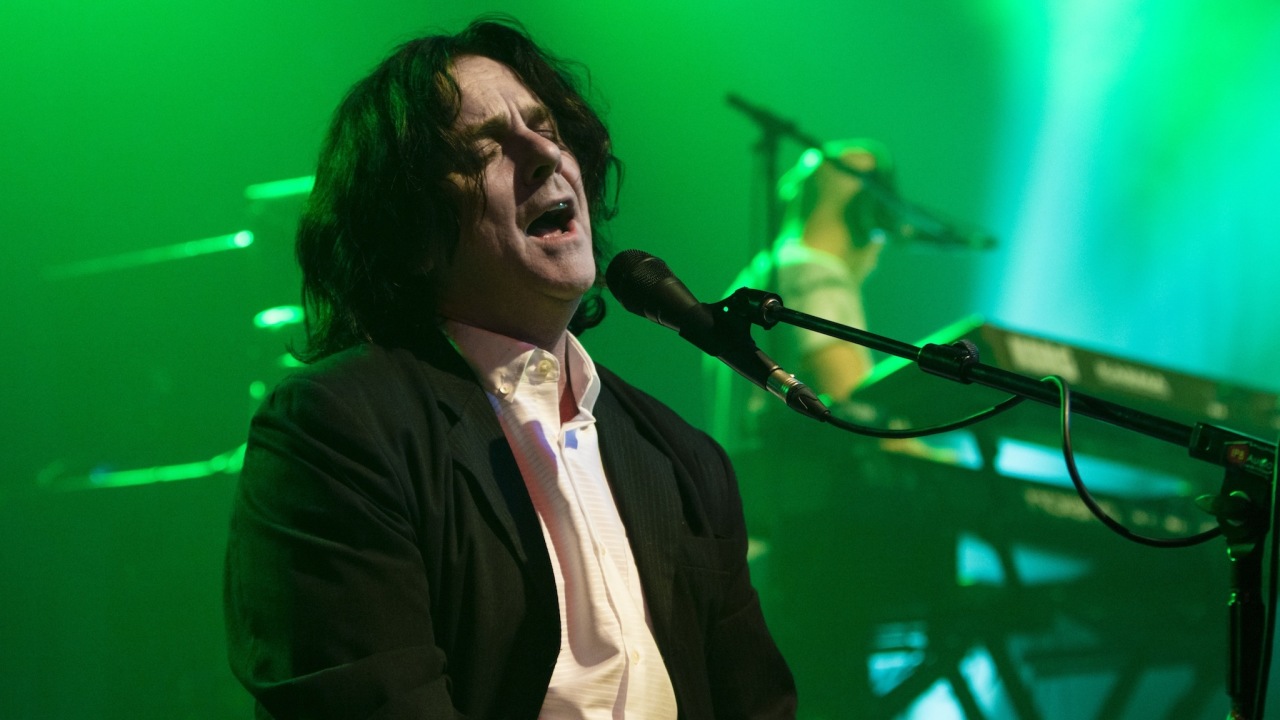Delighting that most resilient of fan bases, this is a 2-CD 2-DVD live album from the neo-prog survivors.
Recorded in March 2013 at the bi-annual Marillion Weekend in Center Parcs, Port Zelande, the Netherlands, where thousands of diehards from 44 countries gathered to defy fashion and critics, it’s over two hours long and focuses on their most recent album Sounds That Can’t Be Made.
Ah, Marillion. They’re the ones with the big Scottish guy singing about how miserable he is despite shagging on the floor in Belsize Park, right?
Really? We have to do this again? Fish left in 1988. That’s over a quarter of a century ago. Marillion regrouped, brought in singer Steve Hogarth, and as pioneers of fan-funded music, have thrived ever since. They may not top the album charts as they did back then, but played a major part in shifting power away from record companies and enjoy a large, extremely devoted following. Marillion have changed. By the way, the Boer War has ended, Disraeli is no longer Prime Minister and there’s this weird new thing called the electric internet.
Oh. So what do they sound like nowadays?
Still pretty epic. It’s not like they’ve got into deep house or grime-core. Extensive numbers play through a series of ebbs and flows, addressing portentous themes from geo-politics to generalised angst. But they also take a breather now and again, lilting into a kind of nineties pop which embraces electronic burbles. Mostly though, it’s ambitious and theatrical, though less Genesis and more their own, long-worked-at thing.
Look, I know Marillion have changed, doofus. I’m one of the believers who only loves them more the more the music press mock them. Tell me about this specific album; I’m a completest and thinking of buying it.
If you know them that well you’ll know Sounds That Can’t Be Made. And that’s here in its entirety, though, as Hogarth explains, not in sequence. “It’s not all in a line…not sure why…something to do with the lighting”. They open with the not-exactly-concise Gaza, with all its stops and starts and earnest liberal concerns. However the album’s other huge set-piece, Montreal, is much more powerful, partly because it allows a mood to settle in, name-checks Joni Mitchell and Leonard Cohen, and conveys an intimate sense of emotion. The other show-stopper is 1997’s This Strange Engine, where they perfect a blend of Foxtrot-style intricacy with “modern” sonic techniques. And there’s a nostalgic, crowd-led trot through Garden Party to close.
And they can still “cut it” live?
That’s the thing with critically “uncool” musos: they usually can. The only downsides are the between-song applause, which goes on for about fifteen years each time, and some unappealingly shaky vocal trip-ups from Hogarth. But you said you’re a Marillion fan. You’re obviously buying this, and loving it.

